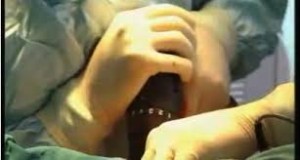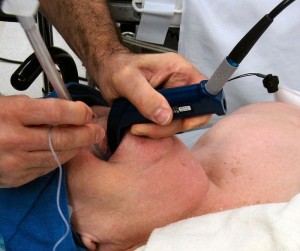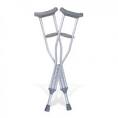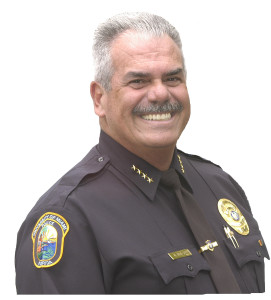…and Heaven have mercy on us all – Presbyterians and Pagans alike – for we are all somehow dreadfully cracked about the head, and sadly need mending
― Herman Melville
Moby Dick
The  ambulance raced northeast on St. Nicholas Avenue, turning in and out of traffic, most of which was trying to get off the street to make way. FDR and Harlem River Drive were too busy, and St. Nicholas seemed the better approach. The patient in the back was unconscious and bleeding, barely alive. The ambulance turned into the
ambulance raced northeast on St. Nicholas Avenue, turning in and out of traffic, most of which was trying to get off the street to make way. FDR and Harlem River Drive were too busy, and St. Nicholas seemed the better approach. The patient in the back was unconscious and bleeding, barely alive. The ambulance turned into the  Emergency Room entrance, and backed up to the loading dock. The patient was off-loaded, and rushed into the ER as she began to code. The staff at NYP had already heard about the explosion at the UN building, and had prepared six rooms for survivors. This patient was the first to arrive.
Emergency Room entrance, and backed up to the loading dock. The patient was off-loaded, and rushed into the ER as she began to code. The staff at NYP had already heard about the explosion at the UN building, and had prepared six rooms for survivors. This patient was the first to arrive.
The ER doctor began to administer CPR, and the patient quickly recovered a pulse and heartbeat. It was clear this was a significant head trauma, appearing to have been caused by something falling onto the back of her head. From her vital signs, it was also clear that her brain was swelling, and there was also evidence of internal bleeding. Emergency surgery was required to relieve the pressure and repair the blood vessels. The orderlies hurried the patient up to the 2nd floor surgical wing. The neurosurgeon on call was  Dr. Ning Lin, an experienced and dedicated practitioner. The patient was prepped and the MRI affirmed the swelling, originating in the area of the bottom of the skull, adjacent to the
Dr. Ning Lin, an experienced and dedicated practitioner. The patient was prepped and the MRI affirmed the swelling, originating in the area of the bottom of the skull, adjacent to the  cerebellum. An x-ray also indicated a previously injury to the left temple.
cerebellum. An x-ray also indicated a previously injury to the left temple.
Dr. Nin  drilled a hole through the skull, being careful to avoid further injury to the cerebellum. He found the broken blood vessels, and quickly repaired them. The patient was stabilized sufficiently for the orthopedic surgeon on call to take over. X-rays had also shown a broken right femur and left ankle. Those bones were pinned. The patient was moved to the orthopedic wing, still unconscious but stable. Casts were placed on the lower portion of her left leg, and upper portion of her right. She was ready to be moved to intensive care.
drilled a hole through the skull, being careful to avoid further injury to the cerebellum. He found the broken blood vessels, and quickly repaired them. The patient was stabilized sufficiently for the orthopedic surgeon on call to take over. X-rays had also shown a broken right femur and left ankle. Those bones were pinned. The patient was moved to the orthopedic wing, still unconscious but stable. Casts were placed on the lower portion of her left leg, and upper portion of her right. She was ready to be moved to intensive care.
The patient was put on  life support to allow her brain time to recover from the massive trauma. As she was in otherwise good health, she was expected to make a full recovery. She was taken off life support on the 4th day, and the intubation apparatus removed 24 hours later. She was now breathing on her own, and had regained consciousness.
life support to allow her brain time to recover from the massive trauma. As she was in otherwise good health, she was expected to make a full recovery. She was taken off life support on the 4th day, and the intubation apparatus removed 24 hours later. She was now breathing on her own, and had regained consciousness.
Through her entire hospital stay, two, then three – then four individuals carried out vigils in waiting rooms adjacent to the ER, and then to intensive care. At noon on the second day, they were each allowed a brief visit with the patient. None of them are relatives, but the hospital’s policy on visitors is fairly lax; they were all deeply concerned about her condition, and each expressed his or her intent to stay for the duration.
On the afternoon of the 5th day, Cecilia was moved to a room on the third floor.  Nikolai,
Nikolai,  Feng Tian, his daughter Meili, and Emily all gathered to visit with her and express their joy at her recovery. Cecilia was happy to see all of them, and happy to meet Meili, the daughter Feng Tian had spoken of so many times. They all took turns holding Cecilia’s hand and talking with her about everything that’d happened since the explosion. But Cecilia remembered nothing about the explosion, or of being taken to the hospital after last rites were administered. She was aware of her own identity, and recalled her friends, but other than that, her mind had been profoundly affected by her injuries. The four of them began to see subtle changes in her personality. She tired easily, and tended to drift off in the middle of conversation. She began to show some symptoms of paranoia, even in the absence of memory of the events that put her in the hospital. They were all concerned about her physical and mental health.
Feng Tian, his daughter Meili, and Emily all gathered to visit with her and express their joy at her recovery. Cecilia was happy to see all of them, and happy to meet Meili, the daughter Feng Tian had spoken of so many times. They all took turns holding Cecilia’s hand and talking with her about everything that’d happened since the explosion. But Cecilia remembered nothing about the explosion, or of being taken to the hospital after last rites were administered. She was aware of her own identity, and recalled her friends, but other than that, her mind had been profoundly affected by her injuries. The four of them began to see subtle changes in her personality. She tired easily, and tended to drift off in the middle of conversation. She began to show some symptoms of paranoia, even in the absence of memory of the events that put her in the hospital. They were all concerned about her physical and mental health.
On the 8th day, Cecilia was helped to her feet and handed a  pair of crutches. There was an expectation that she should try to walk. But she became so dizzy and nauseated that she was put back in the bed to try again later. Each successive attempt also ended in failure.
pair of crutches. There was an expectation that she should try to walk. But she became so dizzy and nauseated that she was put back in the bed to try again later. Each successive attempt also ended in failure.
After the third day, the four friends had a conversation with Dr. Lin. He explained to them that the trauma injured Cecilia’s cerebellum, a part of the brain responsible for many things, one of which is balance. Until that portion of the brain is healed, she will endure dizziness, particularly upon standing from a lying position. But the only solution is to continue to try, as there is no physical reason for her not to attempt to stand and walk. The more she tries, the less dizziness she will have to endure. Dr. Lin encouraged all of them to work with Cecilia, and get her to keep trying.
The next six weeks were painful. The  Thanksgiving holidays came and went, but Cecilia continued to have difficulty walking and standing. She began to see her friends as enemies, not really interested in helping her, but interested in making her suffer. Her paranoia seemed to grow.
Thanksgiving holidays came and went, but Cecilia continued to have difficulty walking and standing. She began to see her friends as enemies, not really interested in helping her, but interested in making her suffer. Her paranoia seemed to grow.
Finally, a psychiatrist was brought in to consult with Dr. Lin. He suggested a mild treatment regimen of low doses of  Xanax and Zyprexa. After two weeks, her symptoms had virtually disappeared. She was able to stand and walk with some small assistance from her friends. Finally, in December – just before Christmas – she was released to go home to Miami.
Xanax and Zyprexa. After two weeks, her symptoms had virtually disappeared. She was able to stand and walk with some small assistance from her friends. Finally, in December – just before Christmas – she was released to go home to Miami.
Her mother had visited her several times in the hospital, and was happy to have Cecilia home. She prepared all her favorite Cuban meals, to once again assist her in regaining the weight she’d lost in the hospital. Cecilia was happy to be home, but immediately begins to miss her friends. The previous four weeks while she was on her medication had brought the four of them together – they were a family. But then Nikolai returned to Moscow, and Feng Tian and Meili returned to Beijing and their respective lives. Cecilia had not heard from Emily since she’d left New York. Cecilia was lonely and afraid. She hated the side effects of her medication, which caused her to have headaches and to frequently experience fatigue. After ten days at home, Cecilia chose to stop taking the two drugs.
Within days, her balance again became affected, as well as her personality. She began to lose patience with her mother, particularly with respect to  Rubio, her mother’s standard poodle. Cecilia was so impatient with life at home, she attempted to return to work. But the effects of the trauma on her memory, as well as her attention span, made work difficult. She found it impossible to sit at her desk for more than a few minutes. She began to think she was losing her mind, as she had thoughts of aggression – particularly with respect to Rubio. She was convinced – for real this time – that the dog was determined to kill her.
Rubio, her mother’s standard poodle. Cecilia was so impatient with life at home, she attempted to return to work. But the effects of the trauma on her memory, as well as her attention span, made work difficult. She found it impossible to sit at her desk for more than a few minutes. She began to think she was losing her mind, as she had thoughts of aggression – particularly with respect to Rubio. She was convinced – for real this time – that the dog was determined to kill her.
So Cecilia decided to kill him first. She mixed a significant quantity of  antifreeze into his water bowl. At first he wouldn’t drink it, but eventually he couldn’t overcome his thirst, and consumed the liquid. Cecilia’s mother found his stiffened body on the floor in the kitchen. She became hysterical, running into Cecilia’s bedroom to tell her Rubio had died. Cecilia nodded calmly, saying, “Yes, I know. I killed him.”
antifreeze into his water bowl. At first he wouldn’t drink it, but eventually he couldn’t overcome his thirst, and consumed the liquid. Cecilia’s mother found his stiffened body on the floor in the kitchen. She became hysterical, running into Cecilia’s bedroom to tell her Rubio had died. Cecilia nodded calmly, saying, “Yes, I know. I killed him.”
She explained her methods to her mother, and then calmly called the veterinarian to explain what she’d done in the most clinical of terms. The vet sent a tech to retrieve Rubio’s corpse. The vet tech suggested to Cecilia’s mother that she seek immediate psychiatric help for Cecilia, else they will contact the police and have Cecilia arrested for animal cruelty. Cecilia’s mother calls the psychiatric unit at  Mercy Hospital, and explained what had happened. The psychiatrist, in turn, called the
Mercy Hospital, and explained what had happened. The psychiatrist, in turn, called the  Coral Gables police. They sent two patrolmen to pick Cecilia up.
Coral Gables police. They sent two patrolmen to pick Cecilia up.
When the police arrived, Cecilia’s mother admitted them to the condo. They had already been briefed by their sergeant, and instructed to be as gentle as possible in taking Cecilia to the hospital. She was sitting in the living room, reading the biography of mathematician and physicist  Paul Dirac by Graham Farmelo. She looked up at the two patrolmen as they entered the living room. “I suppose you’re here to arrest me for killing my mother’s dog,” she said. The
Paul Dirac by Graham Farmelo. She looked up at the two patrolmen as they entered the living room. “I suppose you’re here to arrest me for killing my mother’s dog,” she said. The  older patrolman said, “No, we’re here to try to take you to the hospital. We understand that you might need some help.” Cecilia thought about that for a few moments, and then said, “Yes, you’re probably right. I’ll get my purse.” With that, Cecilia submitted to being Baker-acted, and taken to Mercy Hospital for observation. That was the beginning of a long, slow descent into madness and, ultimately, to destruction.
older patrolman said, “No, we’re here to try to take you to the hospital. We understand that you might need some help.” Cecilia thought about that for a few moments, and then said, “Yes, you’re probably right. I’ll get my purse.” With that, Cecilia submitted to being Baker-acted, and taken to Mercy Hospital for observation. That was the beginning of a long, slow descent into madness and, ultimately, to destruction.

